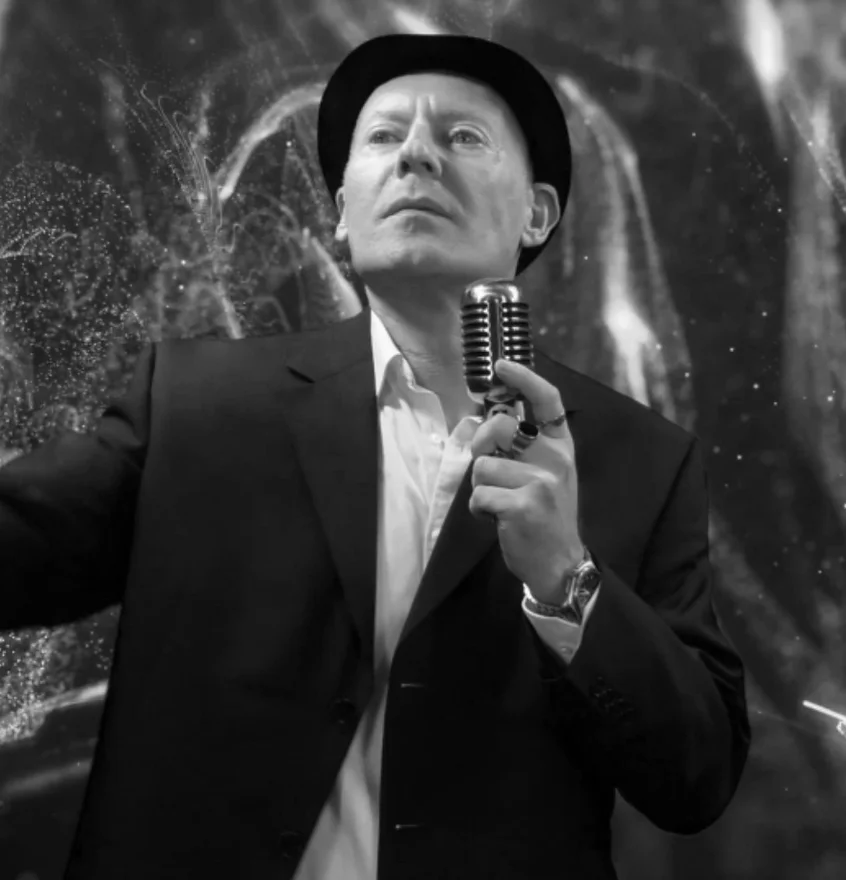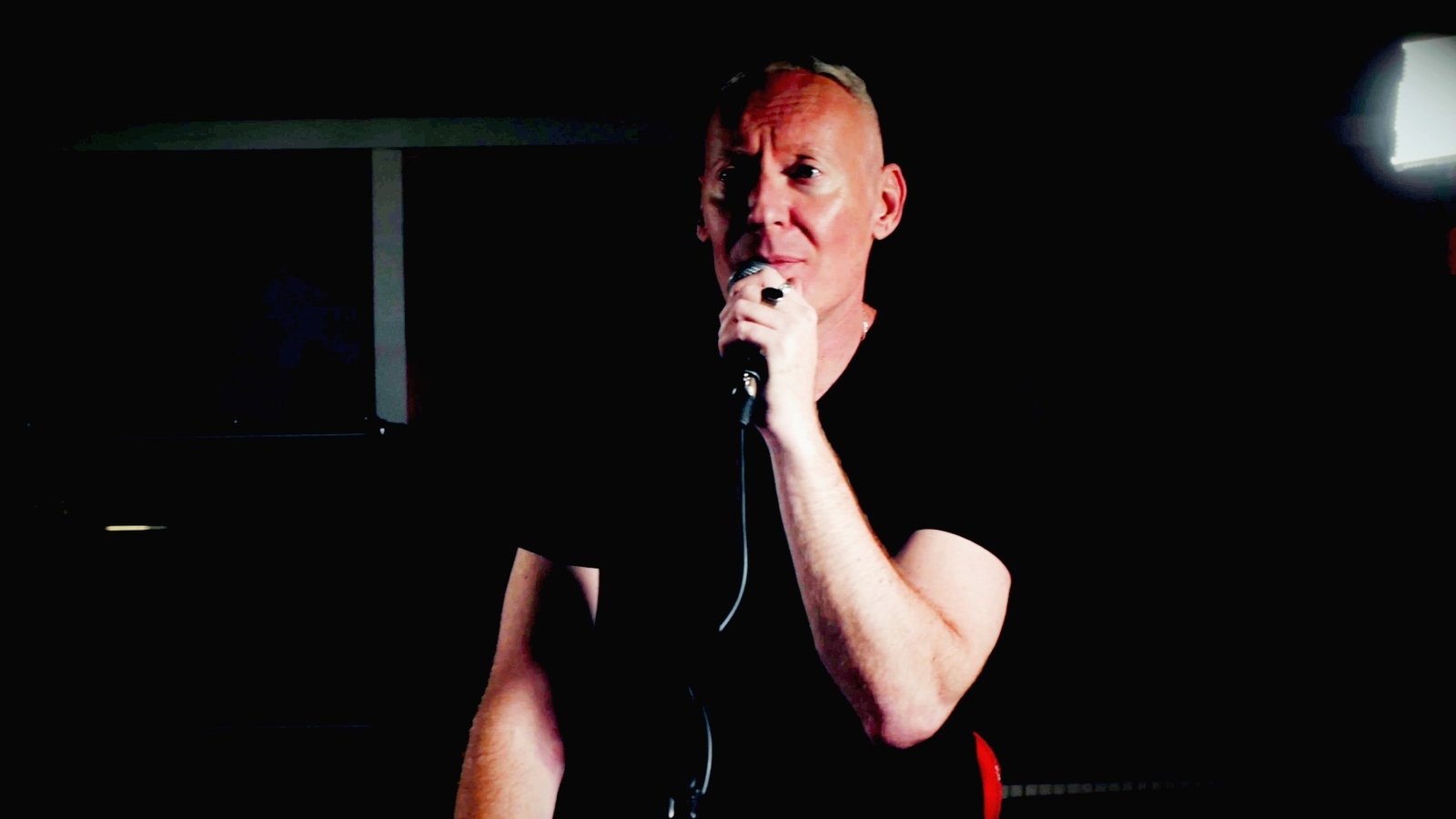Pini Gurfil was described as “having this wonderful ability to bring sad emotions to life only to turn them into something good and uplifting; this is done to an extremely engaging sound that you can’t really get enough of”. He is a genre-bending singer-songwriter who combines soft rock, acoustic rock, goth rock, folk, and jazz-pop. He writes songs in English and in Hebrew. He had previously published two award-winning Hebrew poetry books. His music is dynamic, melodic and melancholic, emphasizing instrumental solos while adopting cinematic elements and delicate re-harmonizations. His emotionally-intense, reflective, lyrics discuss solitude, faith, relationships and struggle, with subtle and ironical subtexts. Check out the exclusive Interview below:

1. Can you tell us a bit about where you come from and how it all got started?
PINI GURFIL: I am a composer, singer-songwriter and lyricist from Haifa, Israel. I write lyrics in English and in Hebrew. I started my artistic career by writing Hebrew poetry, and published two award-winning poetry books in 2015 and 2016. I started writing music in 2014, initially for other artists. I began recording my music as a performer in 2021 with the brilliant Israeli producer Tom Goldstein, with whom I collaborate ever since. My debut album as a singer was titled “Just Below My Cover”. My new album, “Read the Lyrics”, will be released by the end of the year.
2. Did you have any formal training or are you self-taught?
PINI GURFIL: I am mostly self-taught, including musical theory, performance, and composition. In 2019, I attended classes at Rimon School of Music, working with Israeli rock legend Hemi Rudner, in order to polish my songwriting skills. I also regularly take vocal coaching lessons, which contributed to my knowledge of musical theory and solfeggio. I have also learned a lot about harmonization and arrangement from my producer, Tom Goldstein.
3. Who were your first and strongest musical influences?
PINI GURFIL: I grew up listening mostly to classical music, and then to artists such as Leonard Cohen, Nick Cave and John Cale, who remain my strongest influences. I also have an enduring affair with progressive rock, progressive metal, goth, art-rock and avant-garde.
4. What do you feel are the key elements in your music that should resonate with listeners, and how would you personally describe your sound?
PINI GURFIL: I am a musical seeker, exploring various sonic landscapes and lyrical themes. My music, and in particular my new album are genre-bending, including elements ranging from avant-garde metal to southern jazz. There is an evident common thread among all my songs: a unique vocal timbre, melancholic soundscapes, heart-wrenching chord progressions and expressive lyrics. Emotions play a fundamental role in my music. Music, for me, is an outlet into being, and I would like it to have the same effect on my listeners.

5. For most artists, originality is first preceded by a phase of learning and, often, emulating others. What was this like for you? How would you describe your own development as an artist and music maker, and the transition towards your own style, which is known as ROCK?
PINI GURFIL: I do not attempt to emulate other artists, but I may unconsciously borrow some movements or themes from the huge amounts of music I have been listening to over the years.
During the process of musical development, I shifted from diatonic progressions to more chromatic harmonizations. I developed as a rock musician also because of my on-stage experience, playing with rock bands as a keyboardist.
6. What’s your view on the role and function of music as political, cultural, spiritual, and/or social vehicles – and do you try and affront any of these themes in your work, or are you purely interested in music as an expression of technical artistry, personal narrative, and entertainment?
PINI GURFIL: The main role of music, in my opinion, is to add beauty to this world. On a deeper level, I believe that music is a form of transcendental communication. It allows us to create new worlds, and connect to the worlds within us. Therefore, my lyrics are mostly introspective. Music has certainly been used as a form of entertainment, and, due to its immense effect, as a political and societal tool, but I investigate in my songs mostly its emotional and existential effects: Quoting Franz Schubert, “there is no such thing as happy music”.
7. Do you feel that your music is giving you back just as much fulfillment as the amount of work you are putting into it or are you expecting something more, or different in the future?
PINI GURFIL: The new single “Final Romance” deals exactly with this question. Music for me has been an enduring struggle and a delicate balance between an almost-cosmic dedication to writing music, and the pain of rejection. Music is an emotional rollercoaster and a constant struggle between desperation and inspiration. I learned, however, to overcome the fear of exposing the most vulnerable inner-self in front of an unforgiving world.
8. Could you describe your creative processes? How do usually start, and go about shaping ideas into a completed song? Do you usually start with a tune, a beat, or a narrative in your head? And do you collaborate with others in this process?
PINI GURFIL: The best way for me to create music has always been just sitting next to the piano and experimenting with chord progressions. It is always a purely solitary process. After I have the harmony, I continue with the melody, structure, style, and time signature. In most case, I write lyrics to match a composition, because the music itself is much more powerful in reflecting an instantaneous emotional state than the lyrics. It is much easier for me to write lyrics once I realize what state of being that the music reflects. Collaboration usually comes at the production stage, where my producer suggests modifications to my music, and thus becomes a part of it.
9. What has been the most difficult thing you’ve had to endure in your life or music career so far?
PINI GURFIL: I have endured many difficulties and tragedies in my life. It is very evident in my music and in my lyrics. Both express vulnerability on one hand, and understanding of the context of existence on the other hand. One of the most challenging experiences in my musical career was the rejection by record labels. Struggling with the chaotic music industry requires emotional effort almost on a daily basis.
10. On the contrary, what would you consider a successful, proud or significant point in your life or music career so far?
PINI GURFIL: I have been blessed by three wonderful children, a successful career as an aerospace engineering professor, and the capability to fully pursue my artistic endeavors. The peaks in my musical career include collaborations with top Israeli musicians, a top-3 position on the Israeli Rock Chart, awards I have received for my music and lyrics, my live concerts, and the wonderful feedback I get from my small but select audience.
KEEP IN TOUCH:
INSTAGRAM | SPOTIFY | BANDCAMP | WEBSITE | YOUTUBE


